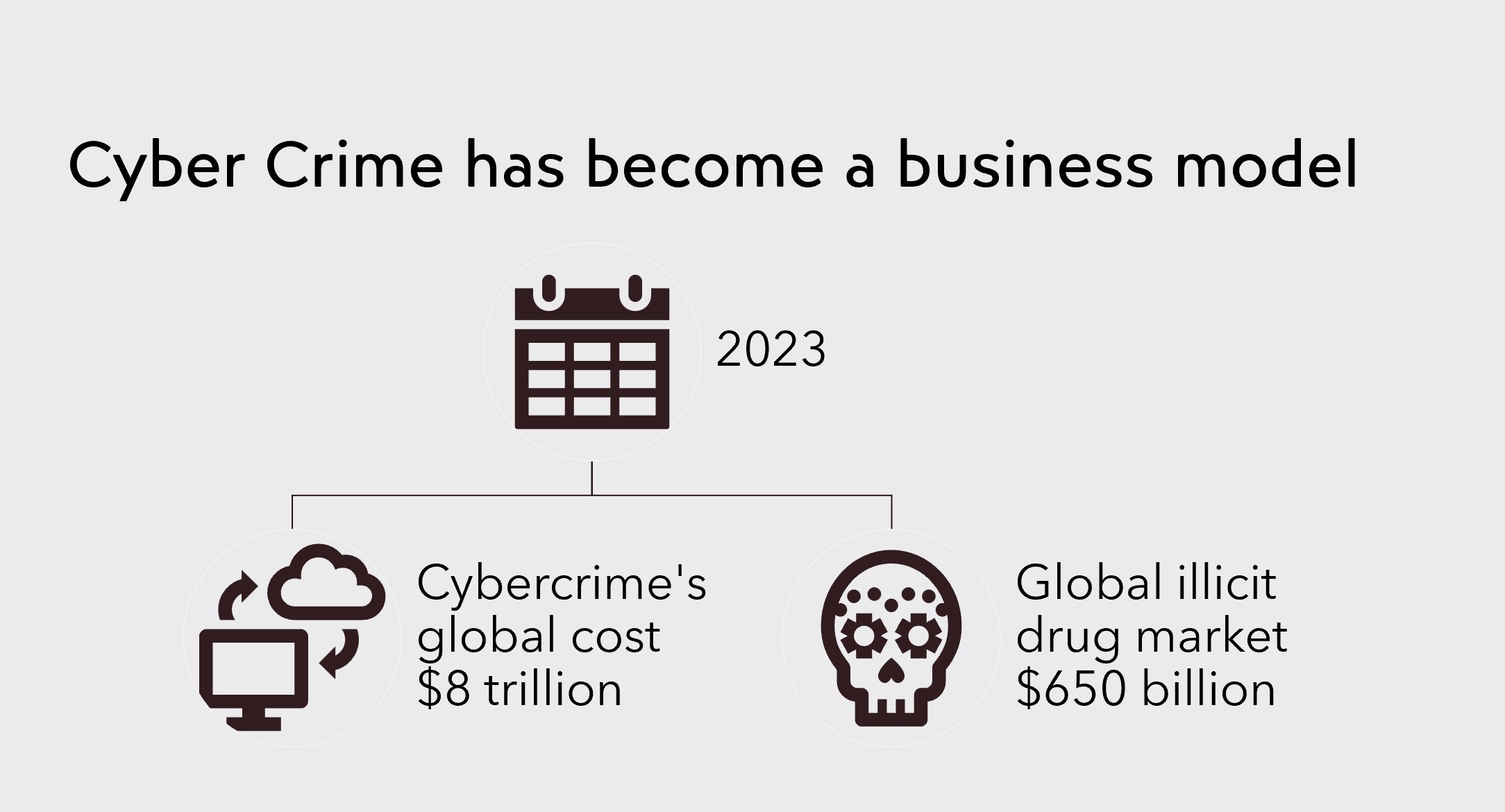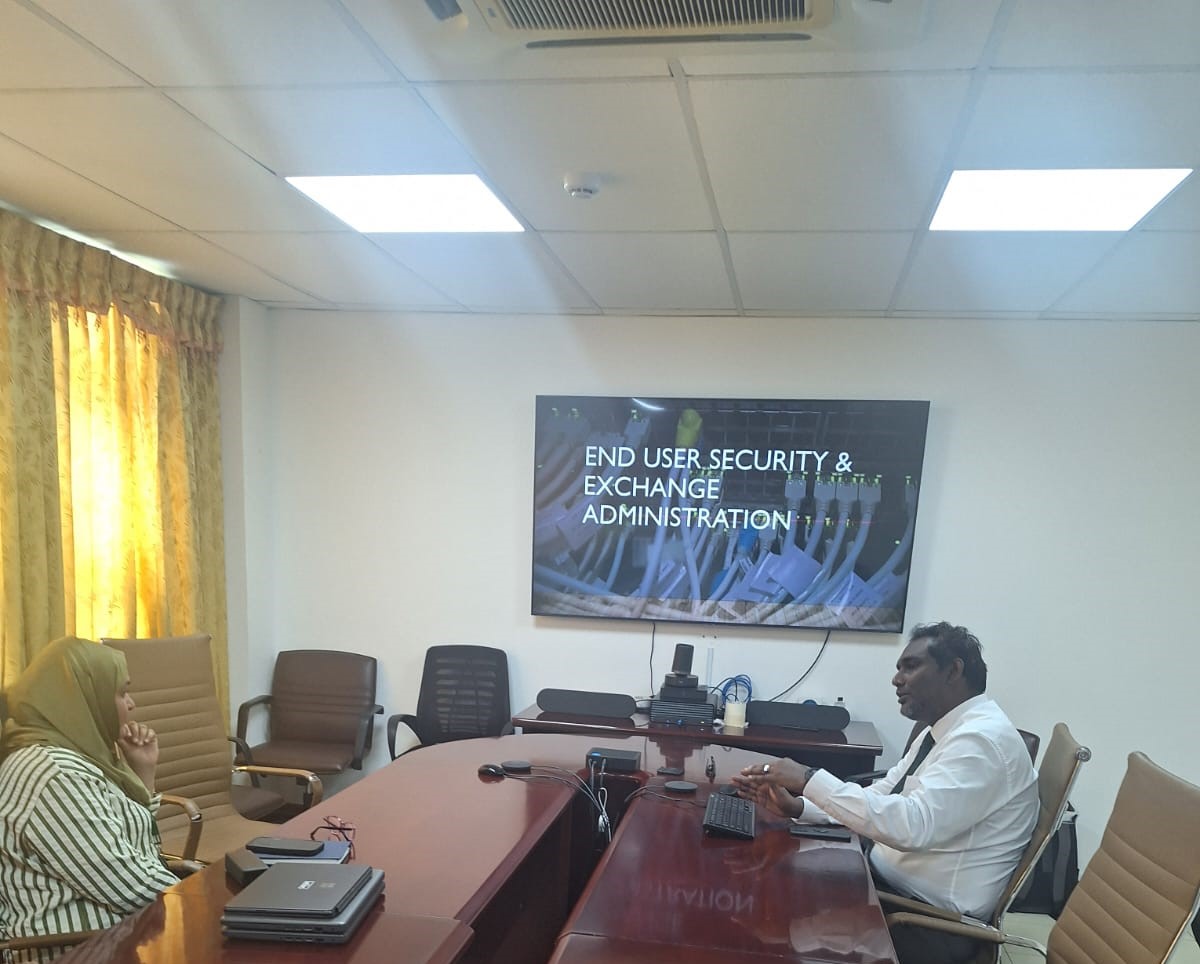Assess Your Cyber Hygiene by taking our Quiz!
Security starts with awareness. Take our quick self-assessment. At NCSA, we work to Nurture awareness, Collaborate for stronger defenses, Secure the Maldives' digital future, and Adapt to emerging cyber threats.
Take the Quiz quizaccount_balance About NCSA
NCSA stands for National Cyber Security Agency and was established under the Presidential Directive on 18th March 2024, NCSA is the central authority for coordinating and implementing national cybersecurity initiatives in the Maldives.
We are a regulatory body empowered to develop policies, manage cyber incidents, promote awareness, and foster collaboration to protect the nation's critical infrastructure and digital assets, operating under the Ministry of Homeland Security and Technology.
Nurture
Fostering awareness & capability growth.
Collaborate
Building strong public & private partnerships.
Secure
Protecting national digital infrastructure.
Adapt
Evolving with the cyber threat landscape.
Our Core Objectives
Develop and implement comprehensive policies, regulations, and standards.
Develop and implement comprehensive cybersecurity policies, regulations, and standards adhering to international best practices to create a robust legal and operational foundation.
Establish capabilities for cyber incident detection, prevention, and response.
Establish and maintain national capabilities for effective cyber incident detection, prevention, response, and recovery, including operating the MV-CSIRT and National SOC.
Foster cross-sector coordination and lead international cooperation efforts.
Foster effective cross-sector coordination between public institutions and the private sector. Lead international cooperation initiatives to share intelligence and best practices.
Improve cybersecurity awareness and build national capacity through training.
Improve cybersecurity awareness among citizens and organizations nationwide. Build national capacity through targeted training, education programs, and skills development initiatives.
Provide expert advice, technical guidance, and enforce regulations.
Provide expert advice and technical guidance to stakeholders. Enforce cybersecurity regulations effectively to safeguard national digital interests and ensure compliance.
trending_upCurrent Posture
Our strategic vision is to elevate the Maldives to the top tier of global cybersecurity readiness within the next five years.
ITU Global Cybersecurity Index (GCI)
Our current GCI Score (2024): 14.82 / 100
Our Goal (2029): Achieve Tier 1 Ranking (>85 / 100)
Areas for Improvement
- gavelLegal (4.52/20)Pass Cyber Security Act, Establish baseline & regulatory frameworks, License professionals.
- memoryTechnical (0/20)Establish National SOC & CERT/CSIRT, Certify NCSA professionals, Implement CI/GRC measures, Secure Software Dev. Model.
- groupsOrganizational (4.88/20)Endorse national strategy, Formalize NCSA legally, Child Online Protection initiatives, Regular security audits.
- schoolCapacity Building (3.16/20)National awareness campaigns, Integrate cyber into curricula, Sustainable talent pipeline (MNU, colleges), Target 50 certified individuals/year.
- publicCooperation (2.26/20)Formal public-private partnerships, International agreements (CERTs), Inter-agency collaboration reporting.
calendar_todayVision 2.0 Initiatives
Mapping the journey of the President's Digital Transformation Vision for national cybersecurity.
This timeline outlines the key phases and milestones planned under the Maldives 2.0 initiative to enhance our cyber resilience and capabilities.
Phase Details
-
gavel Phase I: Legal & Institutional Framework (2024-2025)
Establishing the foundational legal and organizational structures.
Key Milestones:
- check_circle NCSA Establishment (Presidential Directive)
- check_circle Cyber Security Act Drafted
- check_circle Stakeholder Consultation of the draft act Conducted
- check_circle Baseline Cybersecurity Framework Developed
- schedule Secure Software Development Maturity Model Published
- schedule Ratification of the Cyber Security Act
Overall Phase Progress: -
settings_suggest Phase II: Operational Readiness (2026)
Building core operational capabilities, implementing key frameworks, and onboarding key sectors.
Key Milestones:
- schedule National SOC Establishment & Initial Operation
- schedule MV-CSIRT Establishment & Initial Operation
- schedule Identification & Designation of Critical Infrastructure Sectors
- schedule Initial Threat Intelligence Platform Integration
- schedule Cybersecurity Service Provider Licensing Framework Implemented
Overall Phase Progress: -
school Phase III: National Capacity Building (2027–2028)
Enhancing national skills, promoting awareness, and protecting vulnerable groups online.
Key Milestones:
- schedule National Cyber Security Podcast Launched (in Association with PSM)
- schedule National Skills Pipeline Program Launched (with Higher Education Instututes)
- schedule National Cybersecurity Awareness Campaign Rollout
- schedule Child Online Protection Initiatives Enhanced
- schedule 50 Cyber Security Professionals Certified
Overall Phase Progress: -
emoji_events Phase IV: Maturity & Regional Leadership (2029)
Achieving top-tier GCI ranking and establishing regional influence.
Key Milestones:
- schedule Achieve ITU GCI Tier 1 Ranking (>85/100)
- schedule Establish Regional Cyber Safe Summit
- schedule Formalize International Cooperation Agreements (CERTs, etc.)
- schedule Mature Public-Private Partnership Program Assessment
Overall Phase Progress:
library_booksPublications
Explore the core components of our National Strategy or download official documents.
National Cyber Security Strategy Components
- checkCyber Sovereignty: Maintain control over the nation’s digital landscape and data.
- checkBalanced Security: Secure digital spaces while enabling innovation and growth.
- checkPeople, Process, Technology: Strengthen cybersecurity through skilled personnel, effective processes, and advanced technology.
- checkResilience: Develop the capacity to withstand, respond to, and recover from cyber incidents.
- checkResponsible Digital Citizenship: Encourage responsible digital consumption and behaviour across society.
- arrow_forwardProtect National and Public Interests: Secure government systems, businesses, and citizens against cyber threats.
- arrow_forwardEnhance Cyber Resilience: Build and promote the capacity to withstand, respond to, and recover from cyber incidents.
- arrow_forwardPromote Global and Regional Leadership: Achieve international recognition in cybersecurity while safeguarding Maldivian interests.
- arrow_forwardSupport Economic Growth: Foster a secure digital environment that encourages innovation and economic development.
- arrow_forwardFoster Collaboration: Strengthen cooperation between government, private sector, and civil society to achieve collective cybersecurity goals.
Strategy Pillars
NCSA leadership, Legislation, GRC Standards & Audits.
GRC Support, Toolkits, Support Hub, Testing & Certification, Provider Registry.
CI Protection, Incident Response Plan, Proactive Monitoring, Resilience Testing, Threat Intel Sharing.
School Programs, Parental Support, Nationwide Campaigns, Digital Citizenship.
Global Collaboration, Regional Leadership, Cross-Border Cooperation, Legal Cooperation.
schoolTraining Engagements
Highlighting cybersecurity awareness and skills development sessions conducted for various organizations.

Information Security for Middle Managers: Securing Critical Infrastructure.

Briefing on NCSA roles and the challenges of achieving national cyber safety.

Developing a Cybersecurity Mindset for local council leadership.

Specialized cybersecurity training session for Supreme Court Justices.

Online cybersecurity training covering key principles for Judges and Magistrates.

Technical training focused on securing Microsoft Office 365 environments.
quizCyber Hygiene Quiz
Take this short quiz to assess your cyber hygiene practices and awareness of online scam tactics. Get personalized recommendations to enhance your digital safety.
info_outline This assessment is based on elements from academically tested instruments like the Cyber Hygiene Index (CHI) and Online Fraud Susceptibility Questionnaire (OFSQ) concepts, adapted to promote awareness and self-reflection. Results are indicative and intended for educational purposes.
help_outlineFAQ
Understanding the National Cyber Security Act and NCSA.
- labelWhat is the main purpose of the National Cyber Security Act?The Act provides a framework to promote the security and resilience of people, processes, technology, and critical infrastructure in the Maldives against cyber threats and threat actors. The act also provide legal authority the NCSA and address Critical Infrastructure regulations, National SoC and a National Cyber Indicdent response center and its roles and jurisdictions among other things.
- label_outlineWho does the Act apply to?The Act applies generally to cybersecurity activities within the country
- label_outlineWhat is the National Cyber Security Agency (NCSA)?NCSA is the central authority established by a Presidential Directive. The act that will provide legal authoirty has been drafted is expected to reach the Parliment soon
- label_outlineWhat are the NCSA's main functions/directives?NCSA's main function is to be a regulatory body to standardise cyber security and make sure proper policies and porcess are in place to protect the nation.
- label_outlineWhat is National SoC?The National Cyber Security operation center that will be the primary center for actively monitoring cyber threat inteligence feeds from all the public sector instutions legally under NCSA jurisdiction.
- label_outlineWhat is considered Critical Infrastructure?Any digital assest or service that is vital for the running of the counrty. We are working to create the regulatory framework for identifying and designating Critical Infrastructure and its responsibilities.
- label_outlineDo I need a license to offer cybersecurity services?Yes, once the regulatory framework is published, cyber security professionals are required to register and managed sercurity service providers are required to get a license to offer their services.